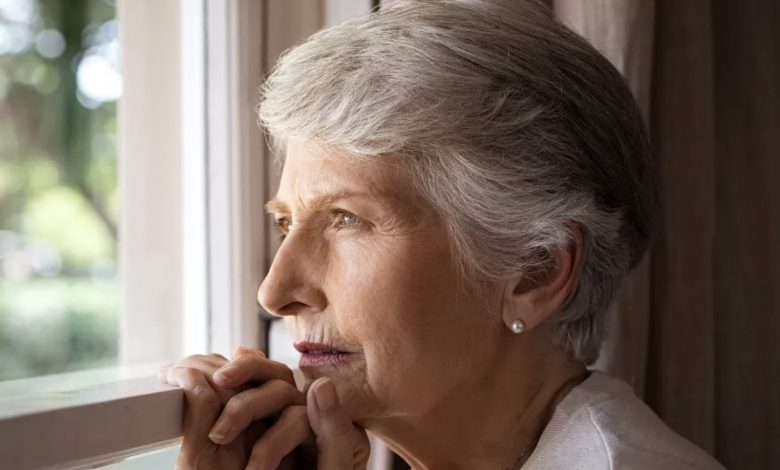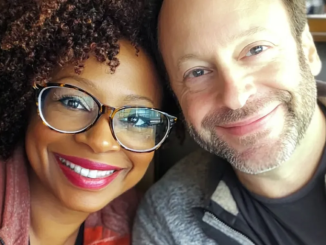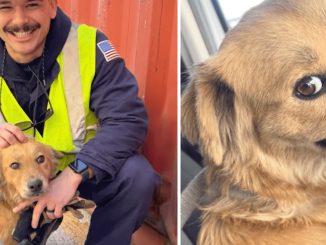
At Grandpa’s funeral, 18-year-old Dahlia feels isolated as her family fumes over the pitiful $1 inheritance. But when a stranger slips her a secret note, Dahlia is pulled into a mystery only she can solve.
I stood by the graveside, hands clenched in the pockets of my too-small black dress, listening to the priest’s droning voice blend with the rustle of the wind.
This was the saddest day of my life, but everyone else in the family seemed more concerned with glaring at each other than mourning Grandpa.
I could feel their bitterness lingering in the chilly October air, thick like syrup. One dollar each. That’s all Grandpa left us in his will, and they were furious. But me? I wasn’t angry. Just… hollow.
Grandpa wasn’t supposed to be gone. He was the only person who ever saw me, not the mess-up or the spare kid nobody paid attention to, but me. He let me in when no one else cared.
I stared down at the flowers resting on his coffin. I’d brought him a red rose, and it stood out among the white daisies everyone else had placed on the casket.
“One dollar,” Aunt Nancy hissed from behind me. “One damn dollar! That man was loaded, and this is what we get?”
Uncle Vic let out a bitter laugh. “Right? I swear he did it on purpose, the spiteful old man.”
“Typical Dad,” Mom muttered, crossing her arms tight across her chest. “He always played favorites, and Dahlia here was his little pet. Bet she got something we don’t know about.”
Aunt Nancy’s eyes cut toward me, sharp as glass. “What did he leave you, Dahlia? Anything? Don’t act like you didn’t get something.”
I stiffened. “I got the same as all of you.”
Mom’s fingers tightened over my shoulder. “Are you sure?” she asked in a low voice. “You were always with him. Maybe he told you something… think hard, Dahlia. You owe it to your family to share whatever he gave you.”
Memories came rushing back of Grandpa’s goofy stories about long-lost treasure and the butterscotch candies he always kept in his coat pocket.
Sometimes, he’d wink at me and say, “One day, kiddo, I’m leaving you a treasure. Real treasure!” But it was just a game, a joke between us.
I shook my head and turned my gaze back to the coffin. “What Grandpa gave me was his love, his stories, and a place that felt more like home than my actual home. Those things were worth more than money, and there’s no way I can—”
“Nobody cares about any of that!” Mom snapped. “Think, girl! What happened to all of his money?”
I shrugged. I truly didn’t know the answer to her question and didn’t care. Grandpa was gone. He was my confidant, my safe place, my friend. I’d lost the most important person in the world, but all they cared about was slapping a price tag on his death.
“She knows something,” Vic muttered, loud enough for me to hear.
Their voices twisted together, accusing, scheming — like they could squeeze secrets out of me if they tried hard enough. But I had no secrets that could earn them more money.
The second they realized there’d be no fortune, they turned away from the grave and stormed off. I could still hear them bickering as they walked away, lashing out at each other like vultures. It made me sick.
“You must be Dahlia.”
I looked up to see a woman, maybe in her 60s, with kind eyes and a worn leather bag slung over her shoulder. Her smile was soft and secretive, like she knew something the rest of us didn’t.
“I was a friend of your grandpa’s,” she said, leaning in as if we were co-conspirators. “He asked me to give you this.”
Before I could respond, she slipped a folded piece of paper into my hand and whispered, “Don’t let anyone see it, especially your family.”
Her presence felt surreal, almost dreamlike, and before I could say anything, she was gone, swallowed by the crowd of mourners. My heart pounded in my chest as I unfolded the note.
111 locker — Southern Railway Station.
For a second, I stood frozen, the words blurring in front of me. Then it hit me: Grandpa’s “treasure.” A laugh bubbled up from my throat, inappropriate and wild, but I couldn’t help it. He wasn’t joking after all.
That night, I lay in bed staring at the ceiling. The note was tucked under my pillow like a secret. Grandpa’s voice echoed in my mind, playful yet certain: “Locker number 111… There’s treasure in there, kiddo!”
A weight settled on my chest, something between grief and hope. What if this wasn’t just some wild goose chase? What if Grandpa had really left something for me, hidden away where no one else could reach?
The thought twisted around in my mind until I couldn’t take it anymore. I needed to know what was in that locker.
I called a cab the next morning. It was the first thing I did after I woke up. As I tiptoed past the kitchen, I could hear Mom muttering on the phone about Grandpa’s will, probably trying to squeeze sympathy or cash out of anyone who would listen.
I clenched my jaw and slipped out the door, the chilly morning air hitting my skin like a slap.
The ride to Southern Railway Station felt like the longest 20 minutes of my life.
My knee bounced with nervous energy as the cab wound through narrow streets, past graffiti-covered walls, and empty coffee shops just starting to open. The driver glanced at me in the rearview mirror but didn’t say a word.
When we finally pulled up at the station, I stepped out and asked him to wait for me. I clutched the note tightly as I entered the train station.
The station smelled like diesel and stale popcorn. People rushed past me in every direction — commuters, travelers, strangers with places to go.
I hesitated at the entrance, suddenly feeling small and out of place. But then Grandpa’s voice floated back into my mind, steady and reassuring: “Real treasure, kiddo.”
I took a deep breath and headed toward the lockers and I could hear my heart pounding. Rows of metal boxes lined the wall, each one looking identical: gray, dented, and slightly rusty.
My eyes scanned the numbers until I found number 111.
I reached into my pocket and pulled out the folded note. The key was taped to the back. With trembling fingers, I peeled it off and slid it into the lock.
For a second, it jammed, and I panicked. But then — click! The lock turned, and the door swung open.
Inside was a duffel bag. It was old, faded, and heavy. My hands shook as I pulled it out and unzipped it.
The bag was full of cash. Bundles upon bundles of it!
I gasped, my mind reeling. It couldn’t be real, could it? I reached in and pulled out a stack, flipping through crisp hundred-dollar bills. There had to be at least $150,000 in there.
And tucked inside the bag was another note, written in Grandpa’s messy scrawl:
For my beloved granddaughter, everything I saved is now yours. Take it and live free, kiddo. The rest of the family may not see your worth, but I’ve always believed in you.
Tears blurred my vision, and I hugged the note to my chest, a knot forming in my throat. This wasn’t just money. It was freedom — a way out.
Grandpa always knew how badly I needed to escape this family. And now, he’d given me exactly what I needed and tricked everyone else in the process!
I zipped the bag shut, slung it over my shoulder, and walked out of the station, my heart pounding in tune with my footsteps.
The early morning sun was just starting to peek through the clouds, casting everything in a soft, golden light. For the first time in years, I felt… light.
During the cab ride back, I stared out the window, watching the city come to life. I had options now. No more suffocating family dinners, no more being ignored or treated like an afterthought, no more being the family scapegoat.
I could leave. I could build something new.
The thought scared me as much as it excited me, but Grandpa’s voice echoed in the back of my mind: “Live free, kiddo.”
As the cab pulled up to my house, I made my decision. I wasn’t staying. Not another minute!
I didn’t even bother going inside. I pulled out my phone, booked a ticket to anywhere, and told the driver to head straight to the airport.
With the duffel bag in my lap and Grandpa’s note tucked safely in my pocket, I smiled for the first time in days.
I was free. And for the first time in my life, I knew exactly what that meant.
I Chose Not to Include My Daughter-in-Law on a Family Vacation, and I Believe My Decision Was Justified

But every trip was a reminder of how connected we were and how much we valued this time together. It was a break from our everyday lives, a chance to let loose and just be, at least for some time.
“Mom, do you remember that time at the beach house when Kayla fell off the dock?” Evelyn would laugh, nudging her sister.
“Don’t remind me!” Kayla groaned, but she couldn’t help smiling. “I still can’t believe you all left me in the water like that.”
“We didn’t leave you, sweetheart. We were laughing too hard to pull you out,” I would tease, shaking my head.
These moments were precious, and I held onto them fiercely. But things started to change when Liam, my only son, got married to Beth.
Beth was sweet when they first met. Quiet, reserved, but kind-hearted. I was genuinely happy for them, and when they got married, I welcomed her into our family with open arms. Naturally, I invited her to join us on our girls’ trips. I wanted her to feel included, to be a part of our little tradition. It felt right at the time.
At first, Beth fit in well enough. She was always polite, maybe a little shy, but I thought she’d warm up eventually. She wasn’t as chatty as my girls, but she seemed to enjoy the trips. We all tried to make her feel comfortable.
“So, Beth,” Kayla asked one afternoon as we sat in a café on one of our trips. “What was it like growing up in Maine? I’ve always wanted to visit.”
Beth smiled softly, twirling the straw in her iced coffee. “It was nice. Quiet. Not much to do in my town, but the summers were beautiful.”
The conversation felt a bit forced, but we all chalked it up to Beth needing time to adjust. She’d become part of our family, and I wanted her to feel like she belonged.
But after Beth gave birth to her son, Lucas, things changed. She gained a lot of weight during pregnancy, which isn’t unusual. However, eight years later, she still hadn’t lost the baby weight.
I noticed how much it was affecting her, not just physically but in the way she moved and interacted with us. It was becoming harder to include her in our trips.
One day, we were out shopping. It was supposed to be a fun, lighthearted afternoon, just like old times. We’d hit the mall, grabbed lunch, and made our way through the stores, chatting and laughing. But Beth kept falling behind.
I glanced back and saw her sitting on a bench near the entrance of a department store. She looked exhausted, wiping the sweat from her brow. “You guys go ahead,” she said, breathing heavily. “I’ll catch up.”
Evelyn raised an eyebrow at me, trying to hide her frustration. “Mom, do we need to wait again?”
I sighed. “Let’s just give her a few minutes.”
But those few minutes turned into long stretches of waiting. We’d walk ahead, browse through the racks, and eventually circle back to find Beth still sitting there. It was becoming a pattern — and not just on that day. Every trip we went on, we had to slow down, stop more often, and accommodate her.
By the time we left the mall that day, the mood had shifted. What was supposed to be a carefree afternoon felt strained, and my girls were clearly frustrated.
“Mom, I hate to say it, but these trips aren’t the same anymore,” Kayla said as we loaded the shopping bags into the car.
“I know,” I replied, running a hand through my hair. “I just… I don’t want to leave her out.”
Evelyn nodded, her face softening. “We get it. But we can’t keep doing this. It’s not fair to us either.”
I couldn’t argue with that. I knew they were right. The truth was, Beth’s presence had begun to change the dynamic of our trips, and not for the better.
We were holding back, compromising our enjoyment to accommodate her. And it wasn’t just about walking slower or sitting more. It felt like the whole energy of our outings was different.
The tipping point came when we started planning our annual trip to the pumpkin patch and apple orchard. It’s a tradition we’ve had for years — my favorite time of the year.
The fall colors, the smell of apples in the air, the laughter as we wandered through the orchard picking fruit. It was something we all looked forward to.
As we sat around the kitchen table, Evelyn looked up from her phone. “So, are we inviting Beth this year?”
I hesitated. We all knew what that would mean. Long breaks, slow walks, and probably missing out on some of the things we enjoyed most about the trip.
“I don’t think it’s a good idea,” I finally said, my voice low. “It’s a lot of walking, and… well, you know.”
Kayla sighed with relief. “I’m glad you said it, Mom. It’s been hard with her.”
“We haven’t had a proper girls’ day in so long,” Lauren added, looking at her sisters. “I miss the way things used to be.”
The truth was staring me in the face, and there was no avoiding it.
That’s when I made the decision not to invite Beth. It wasn’t easy, but I told myself it was for the best. My daughters deserved a day to relax and enjoy themselves without constantly having to adjust to Beth’s limitations.
The day of the trip came, and it was perfect. The weather was crisp, the leaves were golden and red, and we spent the entire day walking through the orchard, picking apples, and laughing.
We didn’t have to stop or slow down. It was like the old days, just me and my girls. I even posted a few pictures on Facebook, not thinking much of it.
But later that night, my phone rang. It was Beth.
I took a deep breath before answering. “Hi, Beth.”
“Lilian, I saw the pictures on Facebook,” she said, her voice tense. “Why wasn’t I invited?”
I felt my stomach drop. I knew this conversation was coming, but I wasn’t prepared. “Oh, it was just a small trip,” I stammered. “Nothing big.”
“But I’m family,” Beth said, her voice rising. “Why didn’t you invite me?”
There it was. The question I had been dreading. I could’ve lied, made up some excuse, but what would be the point? The truth was staring me in the face, and there was no avoiding it.
“Beth,” I said softly, trying to choose my words carefully. “It’s not that we don’t want you there. It’s just… well, the walking. You’ve needed a lot of breaks, and it’s made it hard for us to enjoy the trips the way we used to.”
Silence hung in the air for what felt like an eternity.
“So, you didn’t invite me because of my weight?” she asked, her voice barely above a whisper.
I swallowed hard. “Yes,” I admitted, guilt washing over me. “It’s been difficult. We’ve had to change the way we do things, and… I didn’t want to say anything, but it’s affected our trips.”
Beth was quiet for a moment, and I could feel the hurt radiating through the phone. “I thought I was part of this family,” she finally said, her voice trembling. “I thought you cared about me.”
“I do care about you, Beth—”
“No, you don’t,” she interrupted. “If you did, you wouldn’t have excluded me like this. You wouldn’t make me feel like an outsider.”
And with that, she hung up. I sat there, staring at the phone, my heart heavy with regret.
Later that night, Liam texted me. “Mom, Beth’s really hurt. You need to apologize.”
I read the text over and over, feeling torn. Should I apologize? Was I wrong to protect this time with my daughters? I wasn’t sure anymore.
The next morning, I talked to the girls. “Do you think I was too harsh?” I asked as we sat around the kitchen table.
“No, Mom,” Evelyn said, shaking her head. “We love Beth, but it’s not fair to us either. Our trips haven’t been the same.”
Kayla nodded. “We just want to enjoy ourselves like we used to. You did the right thing.”
Their reassurance helped, but I couldn’t shake the guilt. I didn’t want to hurt Beth, but I couldn’t ignore the strain her presence had put on our trips.
I’d reached my limit. Maybe I could’ve handled it better, maybe I should’ve been kinder, but the truth was out now.
I still don’t know if I made the right decision. All I wanted was to protect the bond I had with my daughters. But now I wonder if that decision has cost me something far greater.
Do you think I handled it correctly? What would you have done in my place?



Leave a Reply